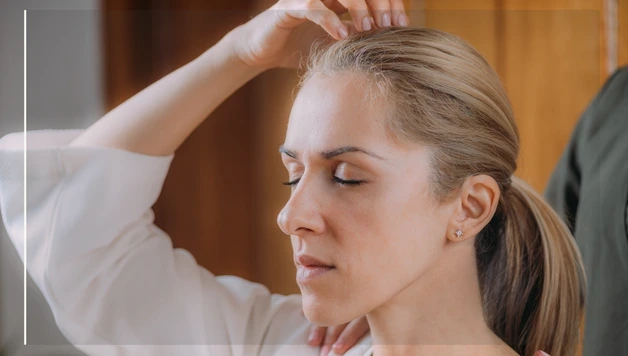Introduction
Menopause is a natural biological process that every woman goes through as she ages. It marks the end of her reproductive years and is typically characterized by several physical and emotional changes, such as hot flashes, night sweats, mood swings, vaginal dryness, and insomnia. While menopause is a natural part of life, it can be challenging for many women. However, self-care during menopause can help ease some symptoms and make the transition smoother.
The Importance of Self-Care During Menopause
Self-care is taking care of oneself physically, mentally, and emotionally. It involves making choices that promote well-being and improve one’s quality of life. Self-care is essential for everyone but becomes even more crucial during menopause. Here’s why:
- It reduces symptoms: Menopause symptoms can be unpleasant and interfere with daily life. Self-care can help reduce the intensity of these symptoms and make them more manageable. For example, practising relaxation techniques like deep breathing and meditation can help reduce hot flashes and improve sleep quality.
- It improves overall health: Menopause is when women are at an increased risk of developing certain health conditions, such as osteoporosis and heart disease. Eating a balanced diet can help reduce the risk of these conditions and improve overall health.
- It promotes emotional well-being: Menopause can be emotionally challenging, and self-care can help promote emotional well-being. This may include engaging in enjoyable activities, such as spending time with friends and family, pursuing hobbies, and practising gratitude.
- It supports healthy relationships: Menopause can impact relationships, and self-care can help support healthy relationships. This may include practising effective communication skills, setting boundaries, and prioritizing self-care needs.
- It encourages self-acceptance: Menopause can change one’s body and self-image. Self-care can help women accept and appreciate their bodies and promote self-love.
Self-care tips for your menopausal journey
Self-care tips for the various stages in your menopausal journey can take many forms. Here are some self-care practices that women can adopt during this time:
Exercise regularly:
Regular exercise or physical activity can help reduce perimenopause, menopause and post-menopausal symptoms such as mood swings, hot flashes, bone loss and weight gain. Try to incorporate exercises that improve cardiovascular health, strength, and flexibility. Aim for at least 30 minutes of moderate-intensity exercise most days of the week, such as walking, swimming, yoga, or weight training. Consult with a healthcare provider to determine the appropriate exercise routine.
Eat a balanced diet:
A balanced diet with a variety of whole foods, including fruits, vegetables, whole grains, lean protein, and healthy fats, can help maintain overall health, reduce the risk of health conditions and manage menopausal symptoms. It’s also important to limit processed foods, sugary drinks, and alcohol.
Prioritise sleep:
Hormonal changes during the various stages of your menopausal journey can lead to sleep disturbances, such as difficulty falling or staying asleep. Still, prioritising sleep can help reduce the impact of these disruptions. Establishing a regular sleep schedule, avoiding caffeine and alcohol before bedtime, and creating a comfortable sleep environment can all help promote better sleep. Create a sleep-friendly environment by keeping the bedroom dark, cool, and quiet.
Stay hydrated:
Drinking enough water is important for overall health, including maintaining healthy skin, and preventing constipation and dehydration, which can lead to headaches, fatigue, and dry skin. Aim for at least 8 glasses of water daily and throughout the day, and avoid beverages that can dehydrate you, such as alcohol and caffeine.
Practice stress-reducing techniques:
Menopause can be a stressful time, and stress can, in turn, exacerbate menopausal symptoms such as hot flashes and mood changes. Stress can hurt overall health, including bone density and cardiovascular health, but engaging in stress-reducing techniques, such as deep breathing, meditation, or yoga, can help reduce stress levels. Engage in activities that bring joy, such as reading, walking, gardening, spending time with friends, or pursuing a hobby.
Practice good skin care:
Hormonal changes during menopause can cause changes in the skin, such as dryness, itch, thinning and more prone to wrinkles. Use moisturisers, sunscreen, and gentle cleansers to keep your skin hydrated and protected from sun damage.
Seek support:
Social connections are important for overall health and well-being. Stay connected with friends and family, join social groups or clubs, or volunteer in your community. Connecting with friends, family, or a therapist can help manage emotional changes and stress during menopause; it can help promote emotional well-being and support healthy relationships. Join a support group or connect with women who are going through similar experiences.
Consider medical options:
Consult with a healthcare provider to determine if medical options such as hormone therapy or other medications can help manage menopausal symptoms. Hormone therapy can help reduce menopause symptoms, such as hot flashes and vaginal dryness. However, it is important to consult a healthcare provider to determine whether hormone therapy is appropriate.
Keep up with recommended health screenings:
Regular health screenings are important for maintaining overall health and preventing chronic diseases. Speak with your healthcare provider about recommended screenings for breast cancer, colon cancer, osteoporosis, and other health conditions.
Conclusion
Self-care is essential during menopause for maintaining physical, mental, and emotional well-being. Engaging in self-care practices can help reduce symptoms, improve overall health, promote emotional well-being, support healthy relationships, and encourage self-acceptance. It’s important to listen to your body and prioritise self-care during this time to help manage symptoms and maintain overall health and well-being.









